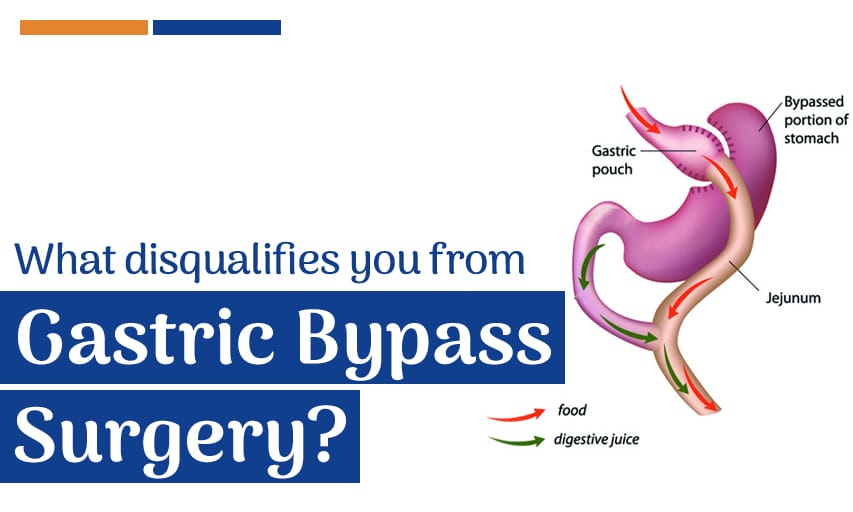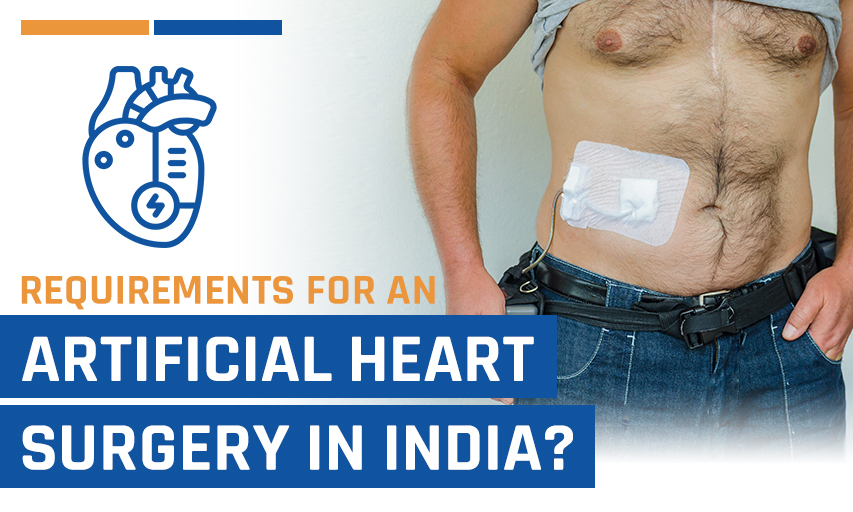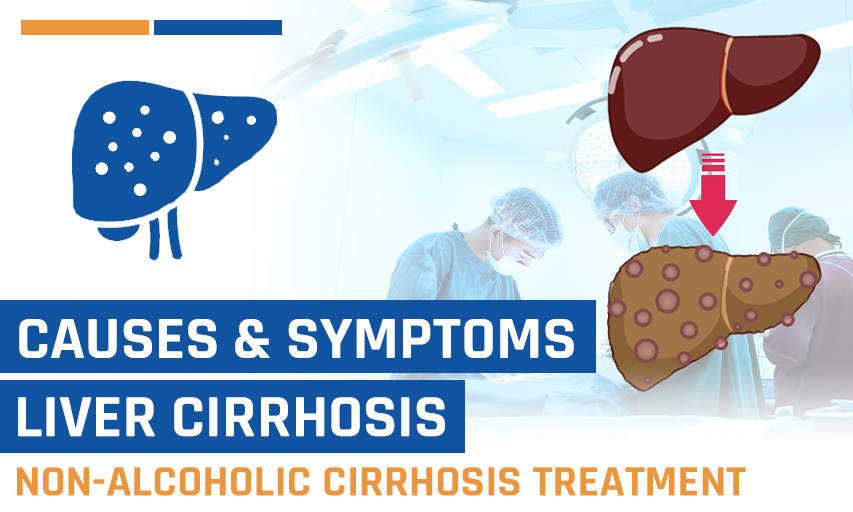What can Disqualify you from Bariatric Surgery?
Many of you have difficulty maintaining a healthy weight or have attempted to reduce weight before. If they have tried but given up in frustration then must seek professional assistance. Further, reducing weight on your own may seem unachievable if your body mass index is above 35. It is due to metabolic, genetic, hormonal, or medical barriers.
Some people struggle to reduce weight despite several attempts. Then bariatric surgery may be your best option. Many people have benefited from bariatric treatment. It is a popular procedure, so you may even know someone who undergoes positive experiences. However, to qualify for bariatric surgery, there are some requirements a person must meet. So, what can disqualify you from bariatric surgery? This article will explain the basics of bariatric surgery, the several kinds of it, and the factors that rule you out as a candidate for this procedure.
Fundamentals of Bariatric Surgery
The main goals of bariatric surgery are to reduce food consumption. By reducing consumption, reducing intestinal and stomach absorption of nutrients.
Chewing food combines with saliva and other fluids containing enzymes. The digestive process starts in the mouth. Then, the meal combines with digestive fluids and breaks down in the stomach to absorb nutrients and calories. The digestion process quickens when food enters the duodenum. Duodenum is the first section of the small intestine. This is where it combines with bile and pancreatic juice.
To prevent normal digestion and absorption of food, bariatric surgery modifies or disrupts this process. Patients may shed extra pounds. Also, lessen their weakness to obesity-related diseases.
Types of Bariatric Surgery
Patients may choose from four distinct kinds of bariatric operations. However, you should know what can disqualify you from bariatric surgery. Your doctor will decide which surgical procedure is necessary based on your overall health. Here are the four categories:
1. Roux-en-Y Gastric Bypass
The gastric bypass is one of the most prevalent surgical procedures for weight reduction. It is a permanent operation that restricts eating capacity. This way, it also limits food absorption.
The surgeon will make an incision in your upper tummy. A pouch around the size of a walnut is formed when this area is separated from the remaining stomach. Instead of holding three quarts of food, this stomach pouch can only store one ounce at a time.
Nextly, The surgeon makes an incision in the abdomen. Then attach a section of the intestine to the pouch. It guarantees that the meal enters the midsection of your intestines rather than the stomach. People who suffer from severe acid reflux benefit from a gastric bypass procedure.
CureIndia facilitates affordable gastric bypass surgery cost, so that you can experience a fit body with this procedure.
People with high body mass indexes and Type 2 diabetes may also benefit significantly. So, ensure to know what can disqualify you from bariatric surgery.
2. Adjustable Gastric Banding
In an adjustable gastric band procedure, an adjustable silicone band is surgically placed across the upper abdominal wall. The stomach can only hold so much food when the band surrounds it. The process is safe and effective because it reduces the amount you eat without altering your body's ability to absorb nutrients. The procedure is also known as Lap Band or Realize Band. This less invasive surgery needs a shorter stay in the hospital.
3. Vertical Sleeve Gastrectomy
The surgeon will create an incision in the patient's stomach and remove the majority of the stomach. After removing almost 80% of the stomach, it left a long tube-like pouch that can only carry a certain quantity of food. The slender stomach may still secrete ghrelin, a hormone that controls hunger.
If this hormone isn't present, your hunger levels will naturally decrease. Obese people (with more than 200–300 pounds) who are unable to reduce weight through previous procedures choose sleeve gastrectomy.
4. Biliopancreatic Diversion with a Duodenal Switch
It consists of two operations, the first quite like a sleeve gastrectomy. In the second step, the surgeon will join the last portion of the large intestine to the beginning of the small intestine, known as the duodenum. Less nutrition is absorbed because food enters the body directly from the stomach rather than the beginning of the intestine. Those who suffer from severe metabolic syndrome or a hormonal imbalance may benefit from a duodenal swap.
What Disqualifies you from Gastric Bypass Surgery?
People who struggle with obesity might benefit greatly from weight reduction surgery. However, not everyone will like it. Some individuals are not good candidates for bariatric surgery, and several factors on the list can disqualify you from bariatric surgery. These include:
1. Age
The age of a patient does not restrict undergoing gastric bypass surgery. However, in most cases, individuals between 13 and 70 are eligible for this procedure.
2. BMI
Patients without co-morbidities and a body mass index (BMI) below 40 are ideal for gastric sleeve or gastric bypass surgery. While there are always exceptions to the rule, most weight reduction surgeries need a body mass index (BMI) of 35 or less.
3. Diet
A healthy diet is essential for weight maintenance. Increase your intake of proteins, fruits, and vegetables, decreasing your consumption of fats and carbs. One must discuss with the doctor what you eat in the weeks' pre and post-surgery.
4. Health
In terms of health issues, what can disqualify you from bariatric surgery? Stomach infections, liver disease, cancer, and other life-threatening illnesses might rule you out as a candidate for gastric bypass surgery. Perhaps you can do it if your symptoms improve or you no longer have those other diseases.
5. Alcohol
Poor lifestyle choices, including alcohol intake, increase the risk before and after weight reduction surgery. It may need more time in the hospital and a prolonged recuperation period. It may be life-threatening in extreme circumstances.
6. Smoking
If you smoke, your risk of experiencing difficulties increases. You must quit for a few weeks before and after bariatric surgery at your physician's suggestion. The nicotine narrows the arteries. It may make the treatment more dangerous and slow down your recovery time.
7. Insurance
Insurance companies' requirements for paying for the cost of bariatric surgery to help you lose weight might vary widely. Clerical mistakes are a common reason for insurance claims denials, so double-check your application. You may not be eligible for coverage from some insurers due to pre-existing conditions or other factors.
Conclusion
Before surgery, patients are given instructions and a food plan to follow to know what can disqualify them from bariatric surgery. The procedure gets postponed or canceled if the patient cannot keep to the prescribed diet and other preoperative requirements. The factors mentioned above suggest the types of persons who are not good candidates for bariatric surgery. If this is the case, you should talk to your bariatric surgeon or nutritionist about any requirements you may have missed.




















Be First To Comment
Leave a Comment